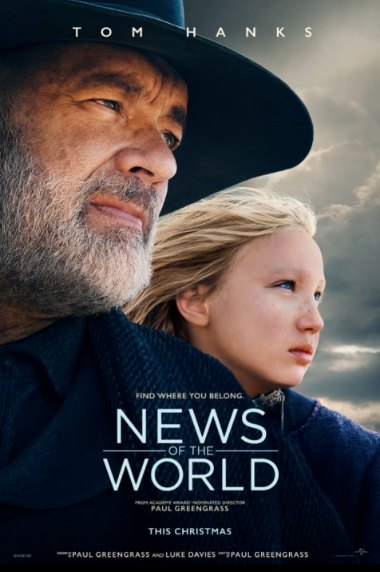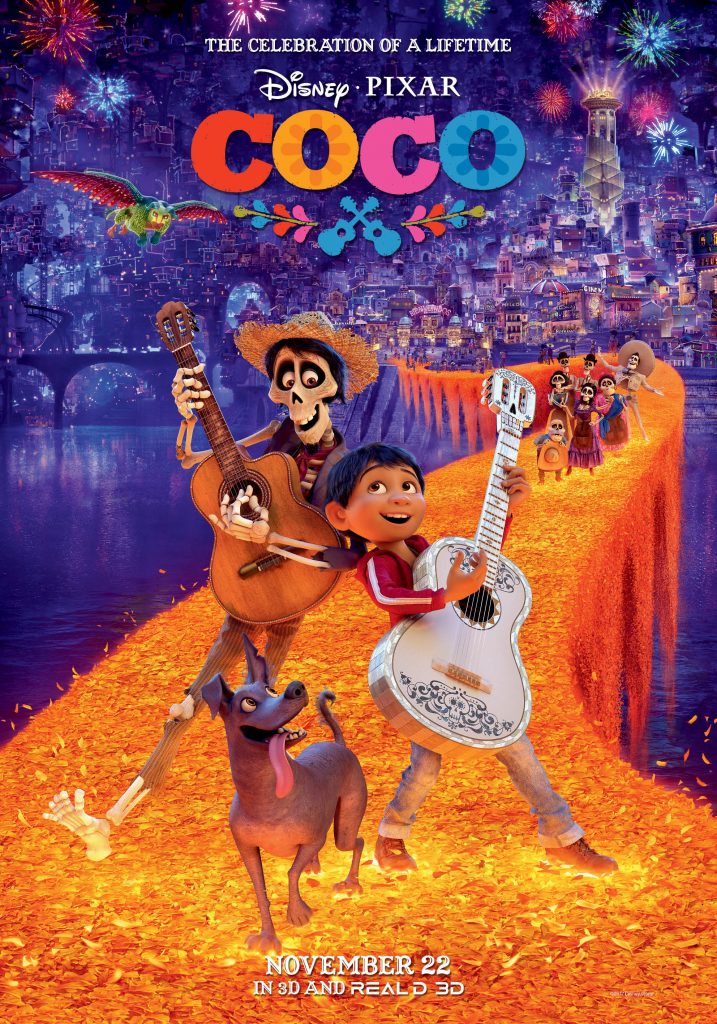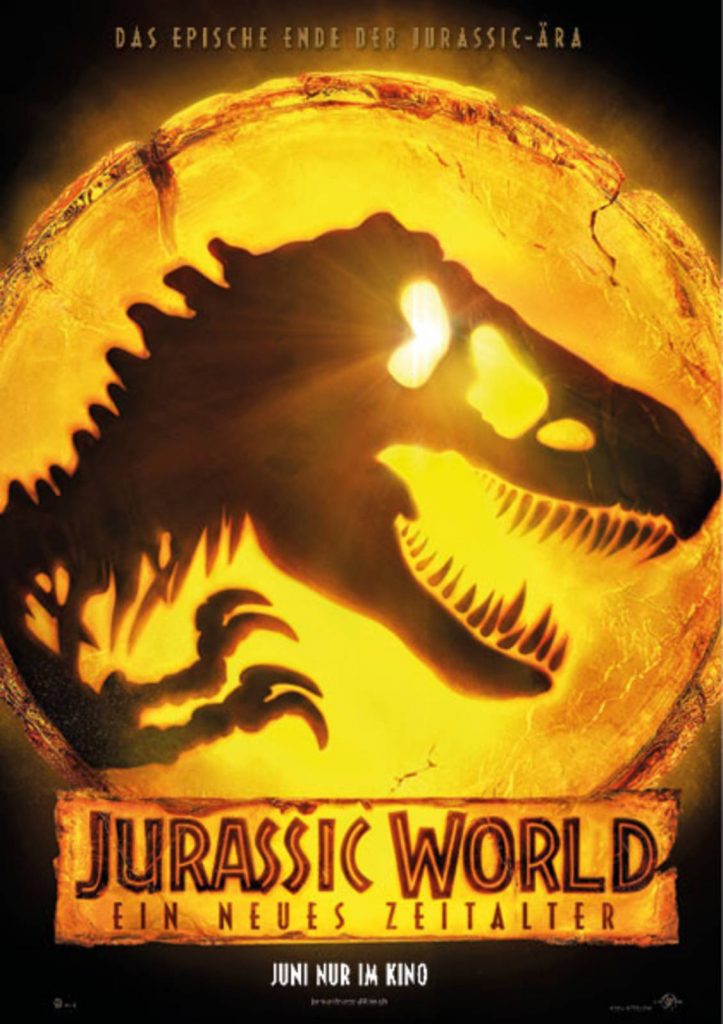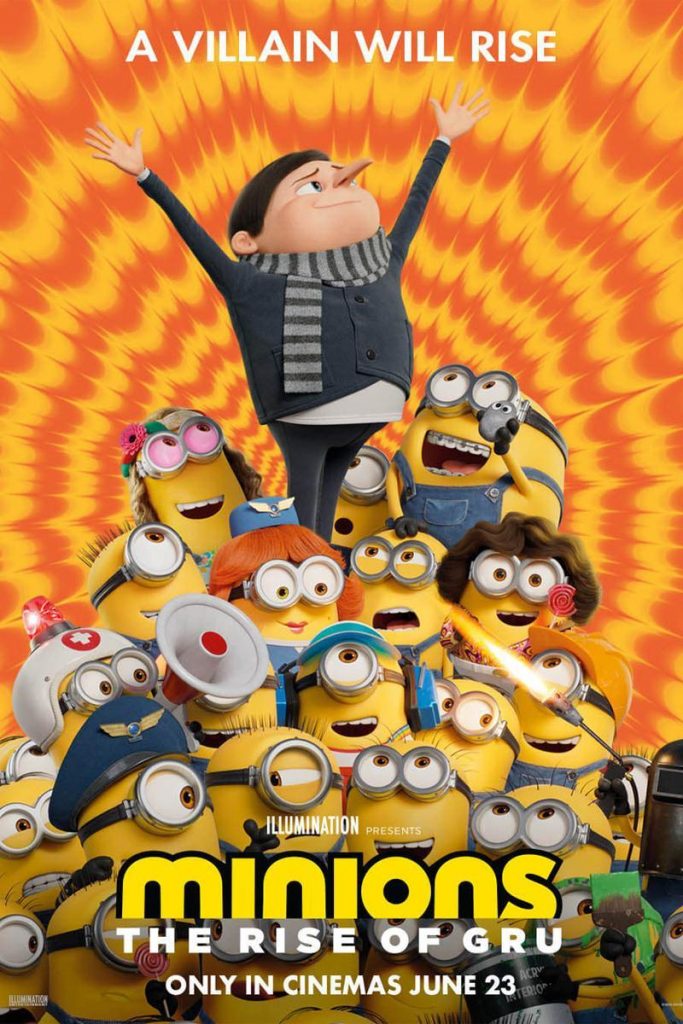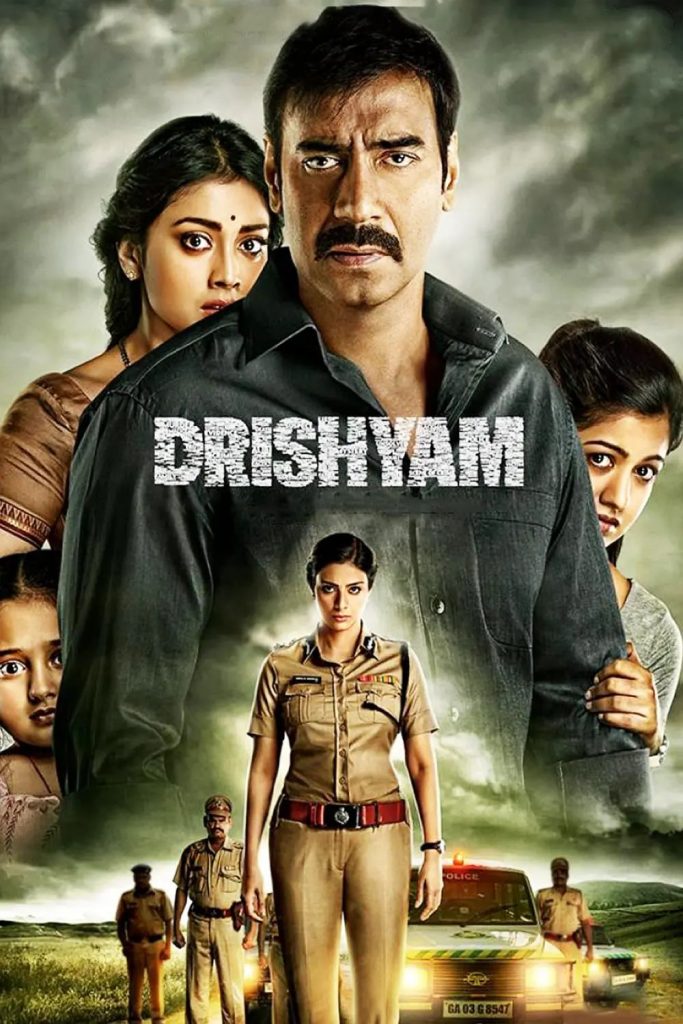The News of the World is read out item by item to an audience of 10 cents each. That’s what Jefferson Kyle Kidd (played by Tom Hanks), once a captain in the Confederate Army, does.
It is 1870, the fifth year after the end of the Civil War. He arrives in the small town of Wichita Falls in North Texas, a vast state, where each town is far apart, the roads are bumpy and full of unknown dangers, and a newspaper reader like Captain Kidd moves from town to town to bring the people the latest news. Only, he seemed to prefer to report happy events – even when there was bad news, he would ‘neutralise’ it with a piece of good news.
He tells stories of faraway places – Chicago, Philadelphia, London …… – places he has never set foot in himself, and often gets a good laugh out of it. He had no idea then that he, too, would be on a strange journey.
After another journey, he first discovers a man hanging from a tree by the side of the road, and then sees Johanna (Helena Zengel), a young white blonde girl in a damaged carriage. Only, the little girl doesn’t speak English, is clad in Indian buckskin clothing and speaks a language that Captain Kidd doesn’t understand.
It turns out that this is the child of a German family whose parents and sister were killed by the Kiowa Indian tribe, and she herself was adopted by a couple from the tribe, so she has always thought that tribe was her home. Captain Kidd, after failing to get help from the government, decided to escort the girl back to her aunt himself. This meant that they would have to travel 400 miles to reach their destination, the small town of Castroville in south Texas.
It was certainly an arduous journey. Although the Civil War had ended and the Confederacy had to embrace abolitionism, the whole landscape of conservative Texas, however, could not be changed by a declaration. The tensions between whites, blacks and Indians did not seem to improve much.
The black man that Captain Kidd saw hanging from a tree was clearly the victim of a “lynching” that was commonplace at the time. He read the words on a leaflet: “This is a white man’s country. Union army. There was also a town, almost like a private fiefdom of the man in power, who had made it clear that “Mexicans, blacks and Indians were not welcome.”
Joanna was perceived as more of a “monster” than a white man in appearance, in speech and in behaviour. Captain Kidd, an older man who never talks about his past and who doesn’t even intentionally go home, initially sees Joanna as a “minor nuisance” who doesn’t speak the language and doesn’t know the most basic habits and manners of the civilised world. We see that Captain Kidd, at first, does not want to add to his “troubles”, but this old man, whether because of his religious beliefs or his natural goodness of heart, is undoubtedly another good man, a man you can trust. His kindness and sense of responsibility are evident in the time he spends with Joanna. With extreme patience, he taught her and did his best to protect her. After all the hardships, they finally reach their destination, but things have changed, and the old and young friends, who didn’t even realise they had become close, are, in fact, already homeless.
What awaits Captain Kidd is the news of his wife’s death. As a religious man, he was so guilty of the bloody battles he fought in that he had been on the road since the war as a way of avoiding going home to his wife, who also shared his strong faith, and yet, now, blames himself even more for not being there for her in her final moments.
Joanna’s aunt and uncle, on the other hand, clearly did not take the Captain’s advice to heart and, in their eagerness to do so, go so far as to tie her up like a dog in order to prevent her from escaping. Still, the film ends on a happy note – Joanna and Captain Kidd, after their pain and grief, heal each other in their own unique way and continue on their journey to bring news to the world. Unlike the Captain’s previous solo ‘anchors’, they also tell their own stories – the twists and turns of their journey. The Captain introduces the little girl as “Joanna Kidd”, so she’s already his family! And the mischievous Joanna weaves in and out of the crowd, quoting in non-standard English and adding special ‘sound effects’ to the Captain’s story from time to time. Throughout the film, although there are some violent and gory scenes, I still found it to be heartwarming. It showed me the vicissitudes behind the familiar names of places, and I was moved by how the relationship between the Captain and Joanna gradually changed from strangers to family.
At first, the girl’s relationship with the Captain is incomprehensible and alien, and in the girl’s eyes, the Captain may be as instinctively frightening as the men who killed her biological and adoptive parents. But over the course of the long and arduous journey, the Captain grows to empathise with Joanna for the pain she has suffered, and when faced with adversity, the two fight side by side, and day by day, the Captain wins Joanna’s trust. Along the dusty roads, she began to observe his world quietly.
They learn each other’s language, from every knife and fork and blade of grass around them; Captain Kidd even risks losing his life rather than sell Joanna, whom he has found by chance and is not yet close to, for profit. And I cannot imagine how this little girl, who has lost her family twice, will face the long road of life if she does not receive timely medical attention for her trauma.
Although Joanna and the Captain could not communicate because of the language barrier, she saved the Captain and herself because of her intelligence, and made the Captain, who was always on the road, feel like family again. The relationship between these two people, who had no contact with each other, became more and more cordial. They trust each other more and more, and unknowingly, love each other more and more.
Captain Kidd’s journey home with Joanna is also a journey of hope – the story begins with the Captain’s hope that the young girl will escape her tragic, violent fate and return home to a life of freedom. And although the story ends differently from the Captain’s imagination, with Joanna returning home to a different kind of confinement, in the end, both are given new opportunities and the Captain himself opens up a long-hidden knot – at his wife’s grave, he takes off the ring and, with reluctance but determination, says goodbye to the past.
From then on, a new page was opened in the lives of the old and the young. They begin a life very different from the one they had before, a life full of laughter and hope.
I made a point of talking to her about News of the World last year when she was pitching another work at a family-style restaurant in town. I told her how I felt about it – that although it was about 150 years ago, it didn’t seem too far away, but on the contrary, there were many details that ‘spoke to me’ and felt like they reflected current realities.
The character of Captain Kidd, for example, is like the Internet today, which allows people to have “everything under control” without having to leave their homes.
Another example is the contemptuous booing that erupts from the crowd as the Captain reads out a news item about President Ulysses S. Grant. Five years after the end of the Civil War, the Confederacy is still on the minds of the people of this land. Who cares about national issues? That’s just fake news – and I think everyone in the audience will have a good laugh at that.
There is, for example, an impressive episode in the production. Captain Kidd is forced to read the news from the local newspaper to the head of the buffalo tanning industry. That newspaper, in turn, is full of pictures depicting the gory slaughter of buffaloes, accompanied by an article saying that he brings wealth to the people. To put it bluntly, this kind of news is purely a “propaganda” tactic to promote him. There is nothing new under the sun, and I’m sure no one is unfamiliar with this kind of propaganda.
But the challenge is still how to overcome the clash of cultures and build trust between people in today’s torn society. A world of sameness, perhaps, can only be a fond wish. It is not easy for anyone to accept that others are different and that cultures are diverse, rather than black and white. But it is the only way to find further ways of bridging, even if only by a very small margin. More importantly, if we all believe, at all times, that everyone deserves to be listened to and has the potential to be reshaped, then this is where the world can hope.
In this regard, Captain Kidd has given us a very good example. The more tolerant and patient you are, the more you can truly feel each other’s hearts. Even if you don’t speak the language, even if you don’t talk well, if you are willing to listen, the other person will be willing to talk. Whether happy or sad, what people release is not just their stories, but also their trust.
As Captain Kidd said, “Stories have power. There are tears, blood, bleakness and pathos in stories of all shapes and sizes, but, there is also laughter, love, kindness and hope.
I believe that this was the reason why Captain Kidd began his career as a newspaper reader, although, at first, he probably did not think he would be able to write stories of love as a result. And that, in my opinion, is the best way for a broken heart to find solace.
